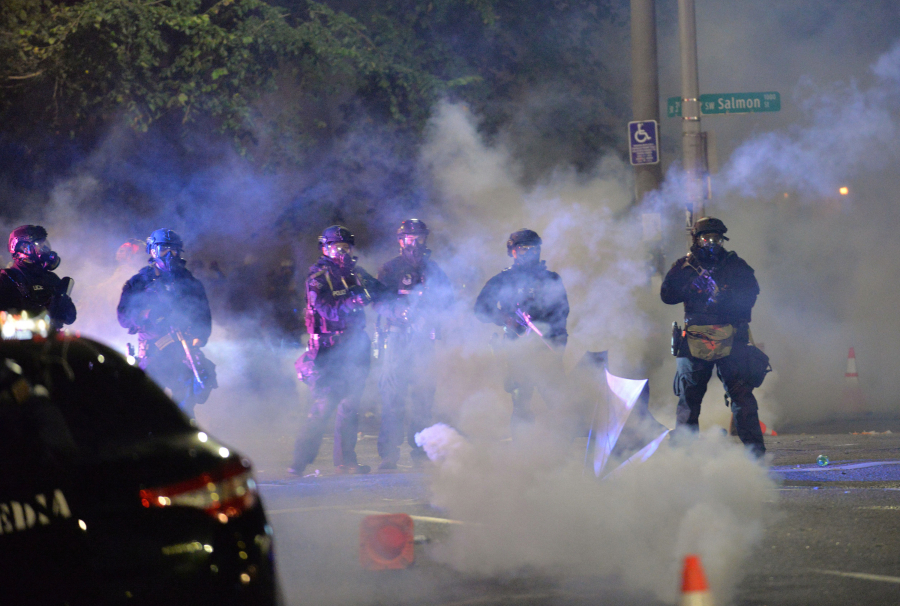PORTLAND — In 2016, the comedian and social commentator W. Kamau Bell filmed an episode of his CNN series, “United Shades of America,” in Portland. Back then, the question was, had Black Portlanders been forced to move away from their historic Portland neighborhoods after they were gentrified by supposedly “hip” and “cool” whites?
Bell came back to Portland in 2020, for another episode of his show, which will air Sunday, May 16. The episode’s title, “Power of Protest,” indicates that Bell turned his gaze to protests that rocked the Rose City, especially in the summer of 2020, when then-President Donald Trump sent federal officers to downtown Portland, on the pretext of protecting federal property.
The clashes between protesters, and federal agents armed with tear gas and crowd-control munitions, escalated into a pitched political battle. Trump condemned Portland, and Oregon politicians called for the federal agents’ removal, comparing them to an “occupying army.”
As Bell says in his voiceover early in “Power of Protest,” “We’ve been here before,” referring to Portland. Back then, though, it was to talk about gentrification, and make jokes about hipsters. “Simpler times,” Bell says.



